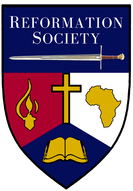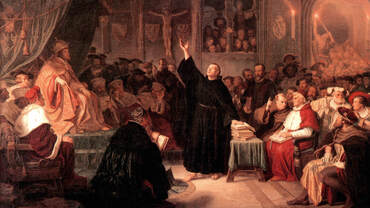 Some have suggested that celebrating the great spiritual Revival and birth of freedom achieved by the Reformation is unnecessarily divisive, and antagonistic to our Catholic neighbours and brethren. This is an unfortunate and unjustified assumption. The purpose of celebrating the Reformation is not to re-open old wounds or to blame present day Roman Catholics for what popes and their followers may have done four to five centuries ago. The purpose of celebrating the Reformation is to focus on the tremendous courage and convictions of those Reformers who restored to us the Bible, freely available in our own languages. The battle cries of the Reformation: Scripture alone is our authority, Christ alone is the Head of the Church, salvation is by the grace of God alone, received by faith alone, is positive and beneficial to all. 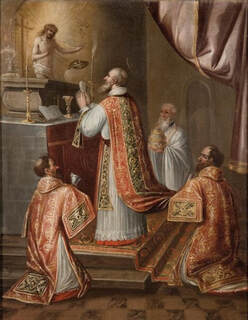 Roman Catholics have immeasurably benefited from the Reformation themselves. The bold actions of the Reformers forced the Roman Catholic church to institute major reforms which radically improved the moral standards of the clergy, cleared up many of the abuses, and ultimately even pressured the Second Vatican Council to allow the Roman Catholic laity to read the Bible in their own language. The Protestant Reformation brought about the greatest birth of freedom and Bible study ever. The Reformation teachings produced the most productive, prosperous and free nations in history. Everyone has benefited from the sacrifices, courage, faith and love of the Reformers. Some have suggested that in celebrating the Reformation we are saying that Roman Catholics cannot be saved. Yet, many of the Reformers that we are focusing on: John Wycliffe, John Huss, Martin Luther, Ulrich Zwingli, and William Tyndale, among many others, were themselves ordained Roman Catholic priests. Of course we believe that Roman Catholics can be saved: by the grace of God, received by faith, on the basis of Christ's atonement on the cross of Calvary, through Scripture, which is the power of God for the salvation of everyone who believes. 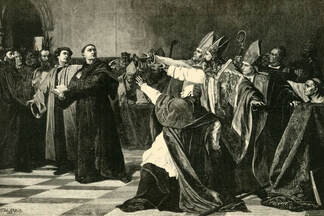 The ongoing relevance of the Reformation in applying the Word of God to all areas of life should also be clear to us. Many Reformed believers through the centuries have tackled different threats and challenges. In the Middle Ages, in the time of Luther, the greatest political power was the Holy Roman Empire, and the only ecclesiastical authority in Western and Central Europe was the Roman Catholic Church. Naturally his focus was the abuses, corruptions and superstitions prevalent in the system under which he lived. William Carey confronted the superstitions, corruptions and abuses of Hinduism, David Livingstone confronted the atrocities, superstitions and abuses of Animism and the Islamic slave trade. Charles Spurgeon confronted liberals within the Baptist Union. Gresham Machan dealt with abuses, corruption and liberalism within the Presbyterian Church, USA. Eric Liddell battled Secularists and Humanists within the Olympic Committee and Shintoism of the Japanese empire; Richard Wurmbrand confronted the atrocities and abuses of Communism. Reformed Christians are not anti-Catholic, they are pro-Christ. 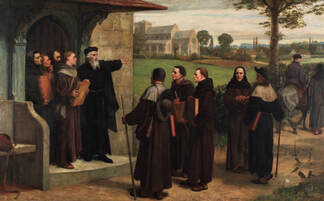 In our commitment to study, believe, preach and apply the Bible to all areas of life, we cannot flinch from confronting whatever abuses and threats face us, no matter from which quarter it comes. We are not anti-Catholic. Some of our friends and colleagues in the fight for the right to life of pre-born babies are Roman Catholic. Many of the churches that we deliver Bibles and aid to, in Muslim and Communist countries, are Roman Catholic. Roman Catholics are frequently our allies in the battle against the greatest threats confronting us today: Secular Humanism, Communism, Materialism and Islam. But the message and ministry of the Reformers is of immense importance and relevance for us today. They dealt with primary issues of authority, salvation and God's Word. Our Faith and freedoms are at stake. In the words of Martin Luther: "If I profess with the loudest voice and clearest exposition every portion of the truth of God's Word, except precisely that point which the world and the devil are at that moment attacking, then I am not confessing Christ, however boldly I may be professing Him. Where the battle rages, there the loyalty of the soldier is proved; and to be steady on all the battle front besides is mere a flight and disgrace, if he flinches at that point." The Greatest Century of Reformation By Peter Hammond Reformation Society P O Box 74 Newlands 7725 Cape Town South Africa Email: [email protected] Website: [email protected]
0 Comments
Leave a Reply. |
Contemporary ArticlesCategories
All
Archives |
- Home
-
History Articles
- History Articles
- All Categories
- Character Studies
- Greatest Century of Missions
- Greatest Century of Reformation
- Reformation In Bohemia
- Reformation In England
- Reformation In France
- Reformation In Geneva
- Reformation In Germany
- Reformation In Italy
- Reformation In Scotland
- Reformation in Switzerland
- Victorious Christians
- Contemporary Articles
- Resources
- Contact
- Donate
|
The Reformation Society
PO Box 74, Newlands, 7725, South Africa Tel : (021) 689-4480 Email: [email protected] Copyright © 2022 ReformationSA.org. All rights reserved |
- Home
-
History Articles
- History Articles
- All Categories
- Character Studies
- Greatest Century of Missions
- Greatest Century of Reformation
- Reformation In Bohemia
- Reformation In England
- Reformation In France
- Reformation In Geneva
- Reformation In Germany
- Reformation In Italy
- Reformation In Scotland
- Reformation in Switzerland
- Victorious Christians
- Contemporary Articles
- Resources
- Contact
- Donate
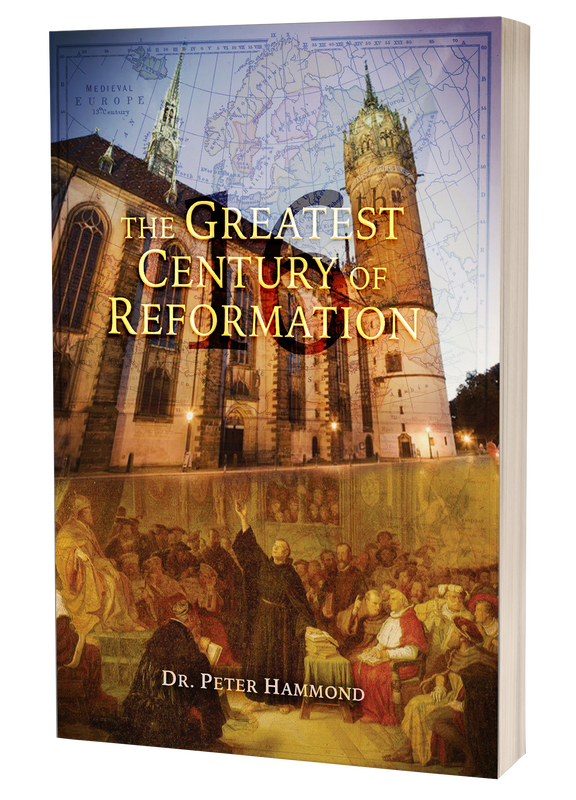
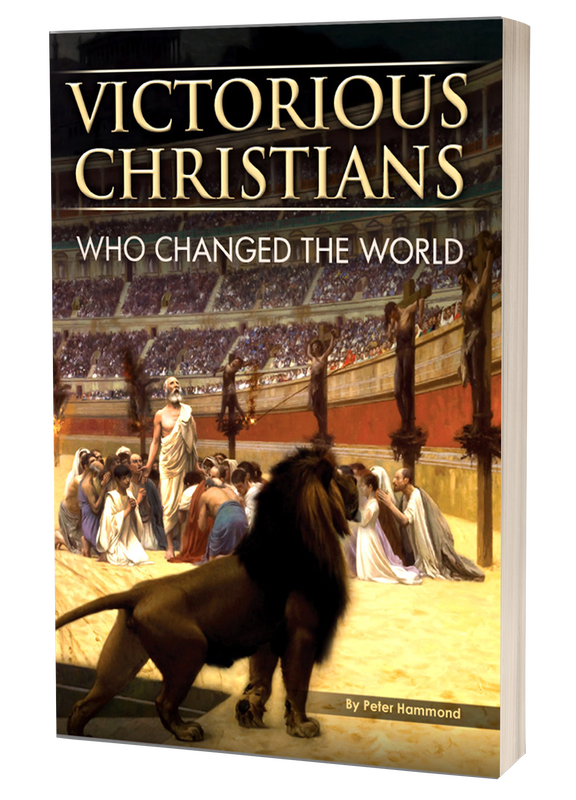
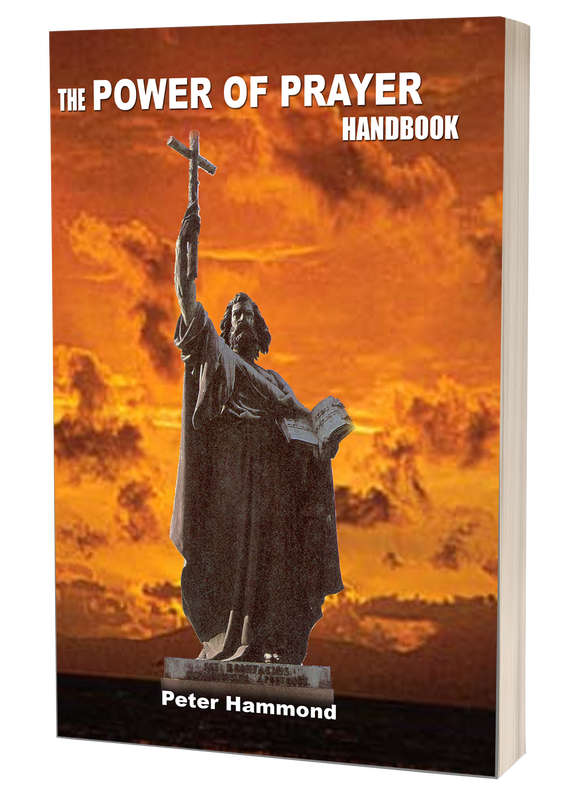
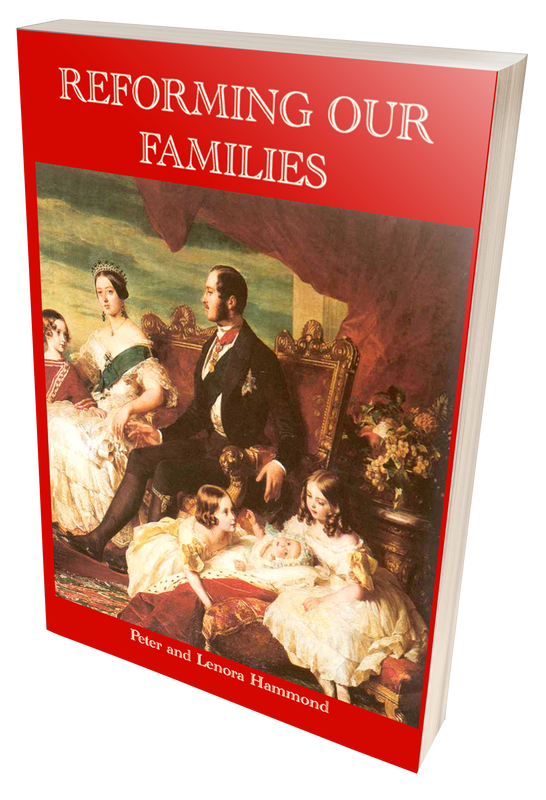
 RSS Feed
RSS Feed
